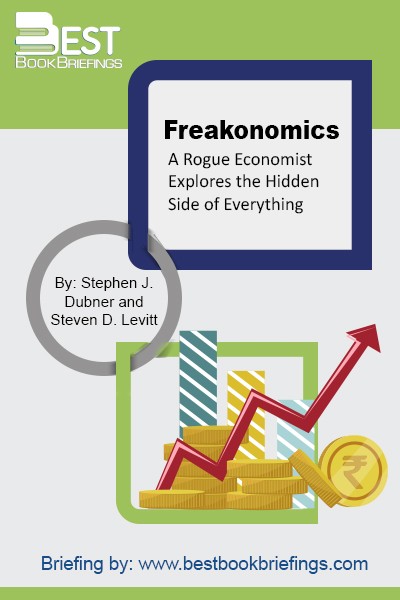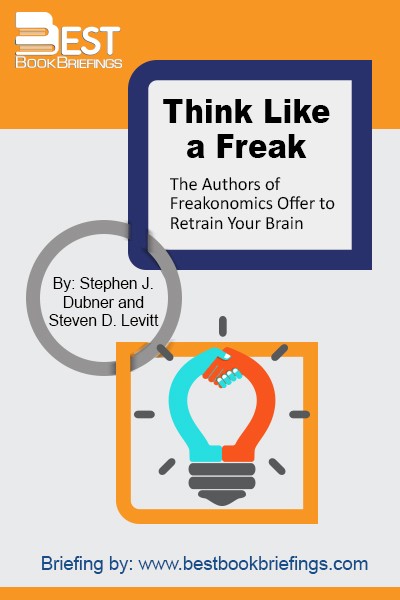Freakonomics
A Rogue Economist Explores the Hidden Side of Everything
Number of pages: 315
Publisher: William Morrow & Company
BBB Library: Economics and Investment
ISBN: 9780060731335
Editorial Review
Incentives are the cornerstone of modern life. And understanding them or ferreting them out is the key to solving just about any riddle. It isn't just the boldface names inside-trading CEOs and pill-popping ballplayers and perk-abusing politicians¾who cheat. It is the waitress who pockets her tips instead of pooling them. It is the Wal-Mart payroll manager who goes into the computer and shaves his employees' hours to make his own performance look better. It is the third grader who, worried about not making it to the fourth grade, copies test answers from the kid sitting next to him. The most volatile current debate among school administrators, teachers, parents, and students concerns “high-stakes” testing. The stakes are considered high because instead of simply testing the students to measure their progress, schools are increasingly held accountable for the results.
Book Reviews
Books on Related Topics
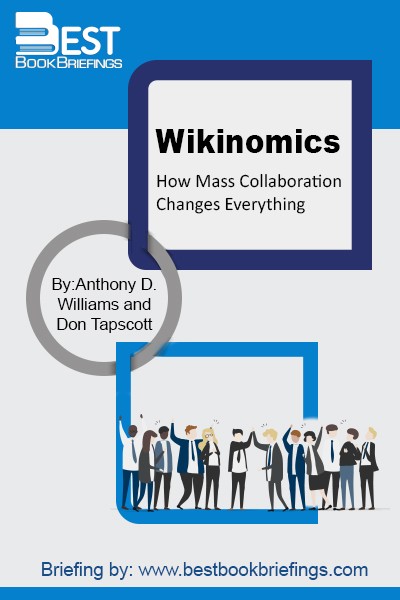
The idea of collaboration has always been used within the framework of board rooms, conferences, video conferencing and the likes. Yet now, the traditional scope of collaboration is moving into mass collaboration, in where millions and millions of individuals are able to play a role in the economy like never before.

There might be an economist sitting near you right now. You might not spot him¾a normal person looking at an economist would not notice anything remarkable. But normal people look remarkable in the eyes of economists. What is the economist seeing? What could they tell you, if you cared to ask?
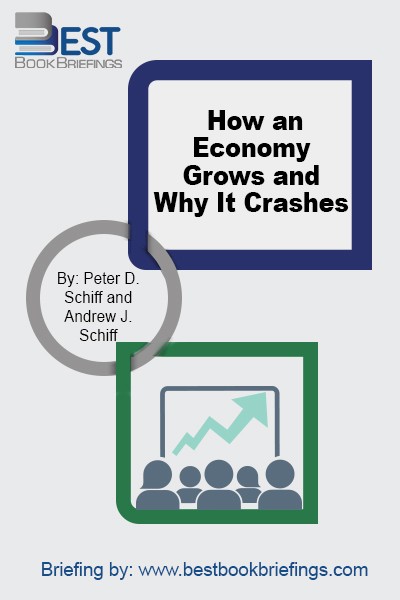
In 2007, when the world was staring into the teeth of the biggest economic catastrophe in three generations, very few economists had any idea there was any trouble lurking on the horizon. Three years into the mess, economists now offer remedies that strike most people as frankly ridiculous. We are told
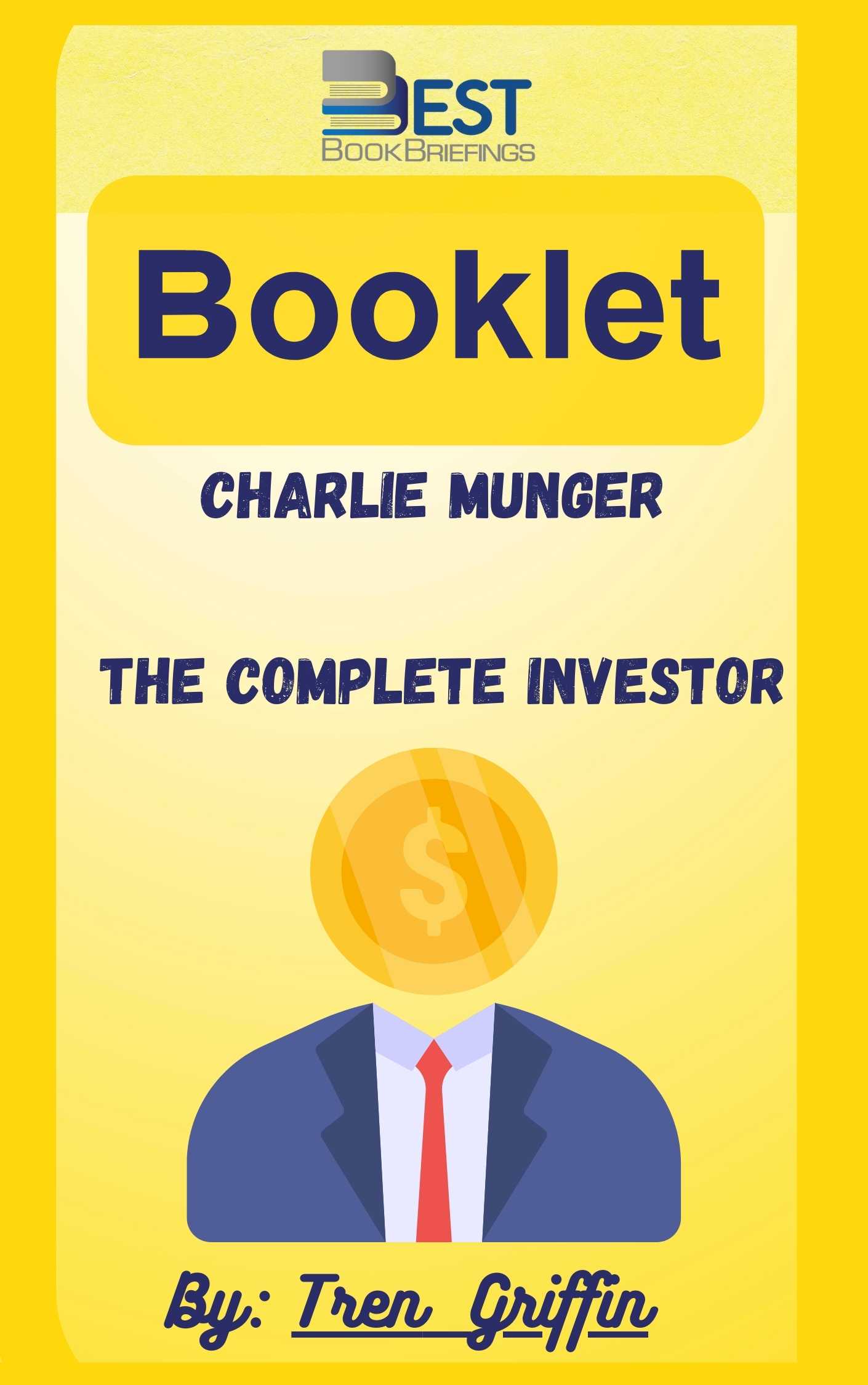
Charlie Munger, Berkshire Hathaway's visionary vice chairman and Warren Buffett's indispensable financial partner, has outperformed market indexes again and again, and he believes any investor can do the same. His notion of elementary, worldly wisdom -a set of interdisciplinary mental models involving economics, business, psychology, ethics, and management-allows him to keep his
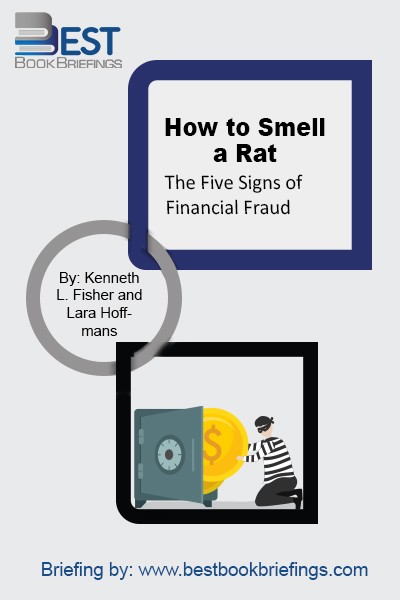
2008 and 2009 will be remembered for bear markets, a global credit crunch and some of the largest investment scams ever. But these scams are nothing new; from Charles Ponzi to Bernard Madoff to Sir R. Allen Stanford, they've been repeated throughout history, and there will certainly be more to come
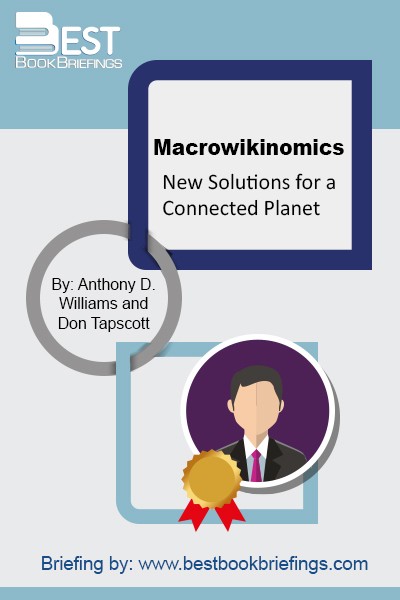
We look back at the time when the world began a historic transition from industrial capitalism to a new kind of economy based on new principles and new ways of thinking and behaving. And while there are certainly many similarities between what is happening today and what happened over five hundred

If you are like most people, for the last 35 years you’ve been investing the Wall Street way. The Wall Street way tells that the proper way to invest is to own a selection of stocks and bonds, and no matter what happens, stay the course. They tell us not to
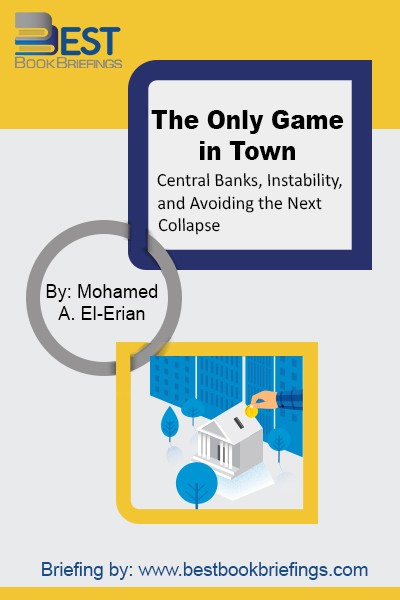
The global financial crisis that shook virtually every country, government, and household in the world in 2008-09 gave way to a frustrating “new normal” of low growth, rising inequality, political dysfunction, and, in some cases, social tensions, so much so that the path of the global economy is likely to end
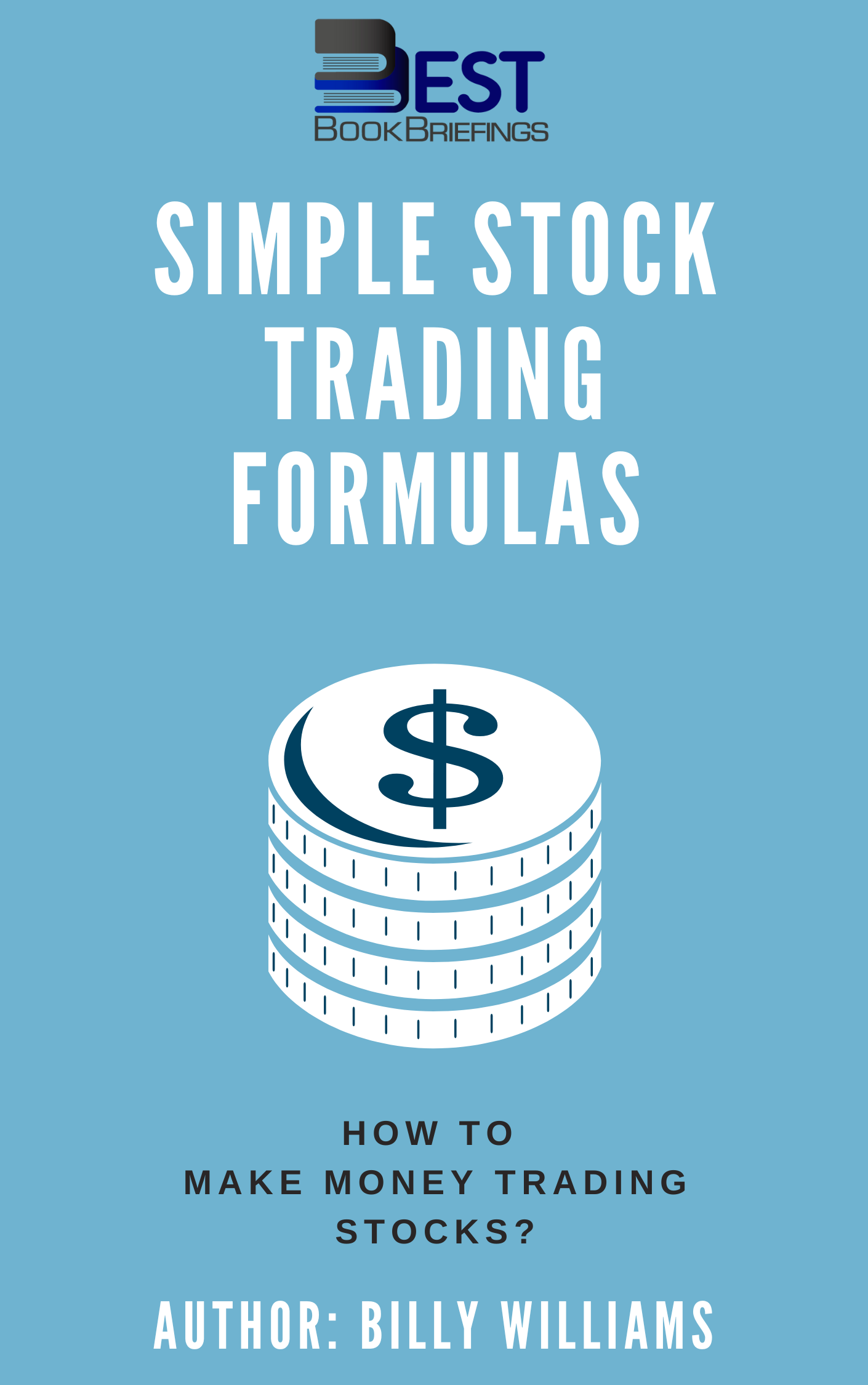
As a frequent contributor to Futures Magazine, MoneyMorning.com, Traders.com Advantage and other top financial publications, I know from experience that stock trading offers enormous profit potential for traders if you have the right tools for success. But, each year, millions of aspiring stock traders still come to the stock market but

